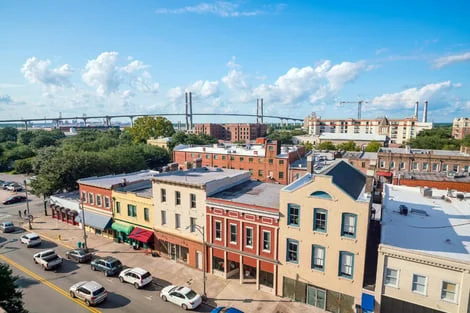Pros and Cons of Accepting Cash Offers on Your Property
When it comes to selling your property, there are several options to consider, including accepting a cash offer. Cash offers can provide a streamlined and efficient selling process, but it’s important to weigh the pros and cons before making a decision. In this blog post, we will explore the advantages and disadvantages of accepting cash offers on your properties. By understanding these factors, you can make an informed choice that aligns with your goals as a real estate developer.
The Role of a Cash Offer in the Current Real Estate Market
Cash offers have become increasingly prevalent in the current real estate market. In a competitive landscape where buyers are seeking quick and hassle-free transactions, cash offers provide an attractive solution. With cash in hand, buyers can bypass the lengthy financing process and offer a quicker closing timeline. This is particularly beneficial for real estate developers who need to sell properties efficiently to fund new projects. Cash offers also hold appeal for sellers who prioritize speed and certainty in their transactions, enabling them to move on quickly without the uncertainties associated with traditional financing.
Pros of Accepting Cash Offers
Speedy Closing: Accepting a cash offer means avoiding the potential delays associated with loan approvals and appraisals. This can significantly reduce the time it takes to close the deal, providing a quicker turnaround for real estate developers to reinvest in new opportunities.
Certainty and Security: Cash offers eliminate the risk of financing falling through or complications arising during the approval process. With cash in hand, the transaction is more secure and less likely to encounter unexpected hurdles.
Negotiation Power: Cash buyers often have more negotiating power since they do not rely on lenders’ approval or appraisal contingencies. This can result in more favorable terms for the seller, such as a higher purchase price or fewer contingencies.
Simplified Process: Accepting a cash offer streamlines the selling process, reducing administrative burdens and paperwork. This can be particularly advantageous for real estate developers juggling multiple properties and projects simultaneously.
Cons of Accepting Cash Offers
Potentially Lower Sale Price: Cash buyers may expect a discount for their quick and hassle-free offer. As a result, the sale price could be lower compared to offers with traditional financing, potentially impacting the profitability of the transaction for real estate developers.
Limited Buyer Pool: Cash offers tend to attract a smaller pool of buyers since not everyone has the means to purchase a property outright with cash. This could potentially limit the number of potential buyers and lengthen the time required to find the right purchaser.
Missed Financing Opportunities: Accepting a cash offer means bypassing the potential benefits of a higher-priced offer that comes with traditional financing. This could potentially result in missed opportunities to maximize returns on your investment.
Tax Implications of Accepting Cash Offers: What Real Estate Developers Need to Know
As a real estate developer, accepting cash offers on your properties can provide numerous advantages, including speed, certainty, and a streamlined transaction process. However, it’s crucial to understand the tax implications associated with accepting cash offers to ensure compliance and optimize your financial outcomes. In this article, we will explore the key tax considerations real estate developers need to know when accepting cash offers.
Capital Gains Taxes:
One of the primary tax implications of accepting a cash offer is the potential for capital gains taxes. When you sell a property for more than its original purchase price, the profit realized is typically subject to capital gains taxes. The amount of tax owed depends on various factors, such as the holding period of the property and your income tax bracket. It’s essential to consult with a tax professional to determine the specific capital gains tax rate applicable to your situation and develop a strategy to minimize your tax liability.
Reporting Requirements:
When accepting a cash offer, it’s important to ensure compliance with reporting requirements set by the tax authorities. In the United States, the Internal Revenue Service (IRS) mandates the reporting of real estate transactions through various forms, such as Form 1099-S for reporting proceeds from real estate transactions. Failing to report the sale of a property or inaccurately reporting the transaction can lead to penalties and legal consequences. To navigate these requirements effectively, seek guidance from a tax professional or accountant well-versed in real estate transactions.
Depreciation Recapture:
Real estate developers often claim depreciation deductions on their properties over time. Depreciation is an accounting method used to deduct the cost of acquiring, improving, or maintaining a property over its useful life. However, when you sell a property for a profit, the IRS requires you to recapture a portion of the depreciation deductions previously claimed. Depreciation recapture is taxed at a higher rate than capital gains, so it’s crucial to account for this potential tax liability when accepting a cash offer.
1031 Exchange:
To defer capital gains taxes and potentially maximize your returns, real estate developers can explore the option of a 1031 exchange. Under Section 1031 of the Internal Revenue Code, you can defer the recognition of capital gains taxes by reinvesting the proceeds from the sale of one property into the purchase of another “like-kind” property. By utilizing a 1031 exchange, you can defer tax payments and continue to grow your real estate portfolio. However, specific rules and deadlines must be adhered to for a successful 1031 exchange, so consult with a qualified intermediary or tax professional to ensure compliance.
State and Local Taxes:
Apart from federal taxes, real estate developers must also consider state and local tax implications when accepting cash offers. Each state may have its own tax regulations and rates, which can significantly impact your overall tax liability. Additionally, local taxes, such as property transfer taxes or documentary stamp taxes, may apply. It’s essential to research and understand the specific tax laws in the jurisdiction where your property is located to ensure compliance and accurate tax planning.
Conclusion
Before deciding whether to accept a cash offer on your property, it’s essential to carefully evaluate the pros and cons. Consider your current financial goals, the specific property in question, and your overall strategy as a real estate developer. While cash offers offer speed and certainty, they may come with a trade-off in terms of sale price and buyer pool. By assessing these factors, you can make an informed decision that aligns with your objectives.
At Savannah Key Deals, we understand the importance of evaluating all options when selling your property. If you have any questions or would like to explore the possibilities of accepting a cash offer, please reach out to us here, call us at (912) 231-7472 or via email at info@savannahkeydeals.com. Our dedicated team is here to provide expert guidance and support throughout the selling process. We look forward to assisting you in achieving your real estate development goals.


